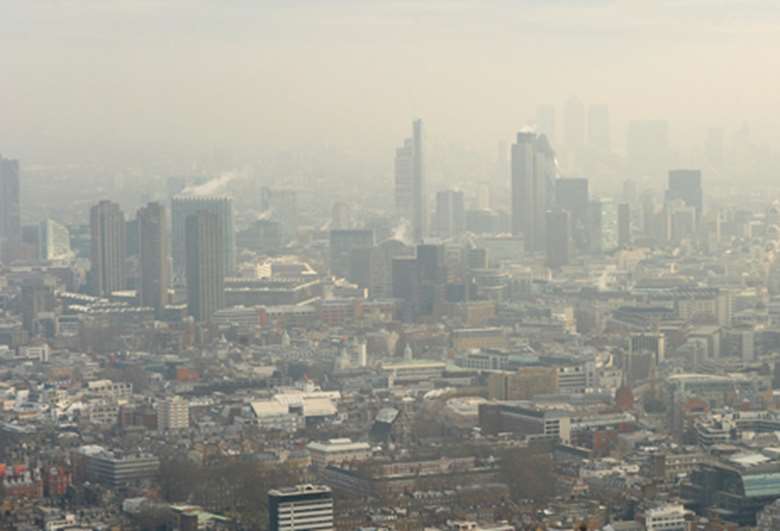Air pollution link to childhood mental illness
Jo Parkes
Thursday, June 16, 2016
Air pollution has been linked to childhood mental illness in a major study.

Better mental health could be seen in the young if air quality is improved, the authors claim.
Even at modest increments, higher exposure was associated with a greater number of psychiatric problems.
Air pollution increased the risk of children and adolescents receiving medication for at least one psychiatric diagnosis, according to the research, from Umeå University in Sweden and published in the peer-reviewed journal BMJ Open.
The risk rose nine per cent with a 10 microgram per cubic metre increased concentration of nitrogen dioxide, a toxic gas produced by diesel vehicles associated with respiratory and cardiovascular disease.
'The results can mean that a decreased concentration of air pollution, first and foremost traffic-related air pollution, may reduce psychiatric disorders in children and adolescents,' said researcher Anna Oudin, of the university's Department of Public Health and Clinical Medicine, and who led the study.
The correlation was seen even after socioeconomic and demographic factors were taken into account.
Mental illness is experienced by 10–20 per cent of all children and adolescents worldwide, which can seriously impact life chances.
Mental ill health is the single largest cause of disability in the UK, contributing up to 22.8 per cent of the total burden, compared to 15.9 per cent for cancer and 16.2 per cent for cardiovascular disease. The wider economic costs of mental illness in England have been estimated at £105.2 billion each year.
At the same time, air pollution has been named by the World Health Organisation (WHO) as one of the biggest health threats of our time, and scientists reported in February that air pollution caused more than 5.5 million people to die prematurely in 2013.
A small number of studies have previously linked air pollution and mental ill-health, but this research is believed to be the first looking specifically at children.
Previous research has also found associations with autism spectrum and learning disorders in children, and air pollution is known to enter the body and brain and cause inflammation.
Children are thought to be particularly sensitive to air quality due to the amount of active time they spend outside and because they are still developing.
The researchers suggested further studies are needed to prove a causal relationship between air pollution and mental illness, but the latest evidence adds to a growing case file.
Researchers looked at a register containing details of drugs dispensed to all Swedes, together with Swedish National Register data of air pollution concentrations.
All under-18s in the Swedish counties of Stockholm, Västra Götaland, Skåne and Västerbotten were studied, totalling more than half a million youngsters.
The four counties differ not just in terms of geographic location, size and population density but also with respect to migration, socioeconomic characteristics, urbanisation, and air pollution concentrations.
The limit for NO2 set by the EU and WHO is 40 micrograms per cubic metre (mcg/m3), which is regularly breached in cities such as London.
In the study, the highest concentrations of NO2 were found in Stockholm, where the yearly median was 8.3 mcg/m3.
The highest levels of tiny particulate matter (PM10) were found in Skåne where the yearly median was 15.8 mcg/m3.
The researchers found that a 10mcg/m3 increase in NO2 corresponded to a nine per cent increase in mental illness in children.
There was a four per cent rise in treatment for mental illness for the same increase in tiny particulate matter (PM2.5 and PM10).
The paper’s publication comes just weeks after news that an air quality report containing alarming data around children’s exposure, was allegedly buried by Boris Johnson.
The report, available while Mr Johnson was mayor of London but not published, said that in 2010, 433 of the city’s 1,777 primary schools were in areas where pollution breached the EU limits for NO2. Of those, 83 per cent were considered deprived, with more than 40 per cent of pupils on free school meals.
Research facts
- A number of studies have observed associations between daily fluctuations in air pollution and mental health outcomes such as depressive symptoms, suicide and emergency calls
- Previous studies have linked living in areas with higher air pollution with decreased cognitive function, poorer neurobehavioural scores in children, a decline in neuropsychological development in the first four years of life and a higher risk of autism spectrum disorders
- It also cites Spanish research on children who attended schools in air polluted neighbourhoods experiencing slower cognitive development than children in areas with cleaner air
- Air pollution can cause damage to the body such as inflammation and oxidative stress
- Exposure to air pollution could induce or exacerbate anxiety by increasing oxidative stress and inflammation
- Animal studies have suggested that oxidative stress is associated with a range of psychiatric disorders such as schizophrenia, bipolar disorder or anxiety-like behaviour, and that systemic inflammation may be associated with depressive-like/anxiety-like behaviour and memory impairment
- An experimental study in mice suggests that fine particulate air pollution could cause depressive-like responses and impairments in spatial learning and memory






